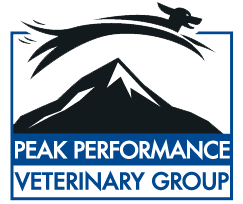 We love fall for the football, crisp cool air, colorful foliage, and even a little bit of snow (depending on where you live). The refreshing temperatures and vibrant colors of autumn create the perfect environment for long strolls with your pet or cuddling up together inside where you are nice and cozy watching the leaves fall from the trees. The holiday season allows us to ramp up our intake of hearty heavy foods and sweets. It is a time for friends, family, holiday feasts, and delectable delights. We know it may be tempting to share some of your good with your pets, but it is important to know which foods are okay for your pet and which foods can be dangerous and even fatal.
We love fall for the football, crisp cool air, colorful foliage, and even a little bit of snow (depending on where you live). The refreshing temperatures and vibrant colors of autumn create the perfect environment for long strolls with your pet or cuddling up together inside where you are nice and cozy watching the leaves fall from the trees. The holiday season allows us to ramp up our intake of hearty heavy foods and sweets. It is a time for friends, family, holiday feasts, and delectable delights. We know it may be tempting to share some of your good with your pets, but it is important to know which foods are okay for your pet and which foods can be dangerous and even fatal.
Alcohol
Alcoholic beverages and food products can cause vomiting, diarrhea, decreased coordination, tremors, coma, and abnormal blood acidity. Under no circumstances should your pet be given alcohol. If consumed contact poison control right away.
Chocolate and Caffeine
All of these products contain methylxanthines which are found in cacao seeds used for coffee, chocolate, and other products such as soda. Ingestion of these products can lead to vomiting, diarrhea, hyperactivity, abnormal heart rhythm, seizures, and even death. Dark chocolate is more dangerous than milk chocolate but baking chocolate can contain the highest concentrate of methylxanthines.
Fruits
Apples, mangos, oranges, peaches, and pears are excellent sources of vitamins and potassium. Remember to peel these fruits and remove any pits or seeds that can contain harmful toxins if ingested. These fruits can be high in sugar content so should be given as an occasional snack instead of a part of your pet’s diet.
Cranberries, blueberries, raspberries, and strawberries contain antioxidants and can be great sources of fiber and vitamins that help older pets with aging joints. They do contain a decent amount of sugar so be sure to offer them as treats in moderation.
Cantaloupe and watermelon are safe for your pet as long as you remove the rind and seeds first to avoid intestinal blockage. These fruits are full of water and can help to keep your pet hydrated.
Lean Meats
Meats that are low in fat and caloric intake are often safe for consumption for your pet provided that the meat is thoroughly cooked. Eggs are an excellent source of protein and can help soothe an upset stomach. Fish such as salmon or tuna, if prepared properly and without any added fats or harmful spices such as garlic and onions, can be a food source of protein and vitamins. Just remember to remove the bones and let the food cool before serving.
Nuts
Nuts can be a tough treat to navigate. While peanuts and cashews are okay if unsalted and in small amounts, macadamia nuts and almonds should be avoided. Nuts are considered fatty foods which in excess can lead to vomiting, fever, lethargy, weakened immune system, and an increased risk of developing pancreatitis- a painful and potentially fatal inflammation of your pet’s pancreas.
Raw Bones
Bones and dogs seem synonymous, but avoid giving him any food bones. Raw bones might be natural if your pet lived in the wild, but domestic pets can choke and suffer from injuries if the bone splinters, punctures, or becomes lodged along the digestive tract.
Vegetables
Carrots, celery, cucumbers, green beans, and peas are great snacks that can also provide beneficial nutrients, minerals, and vitamins. We recommend no salt added or low salt products if you are feeding canned vegetables to your pet. Brussel sprouts and cabbage are also okay but should be given as a treat sparingly as they can make your pet especially gassy.
Xylitol
Xylitol is a common sweetener used in many products such as candy, gum, baked goods, sodas, mouthwash, and toothpaste. It can cause insulin release in most species which can lead to liver failure. Low insulin levels can also lower blood sugar levels leading to symptoms such as vomiting, lethargy, loss of coordination, and possible seizures.
Often pet parents are willing to share almost anything with their pets from their hearts and homes to even their beds. Though there is no harm in wanting to share your food with your pet, it is important to know which snacks are safe and which are not to ensure your pet lives a happy and healthy life. If you believe your pet has consumed something he shouldn’t have or a substance that is toxic to animals, contact poison control immediately. For more information on which foods are pet friendly or to schedule an appointment, please contact Peak Performance Veterinary Group today.
